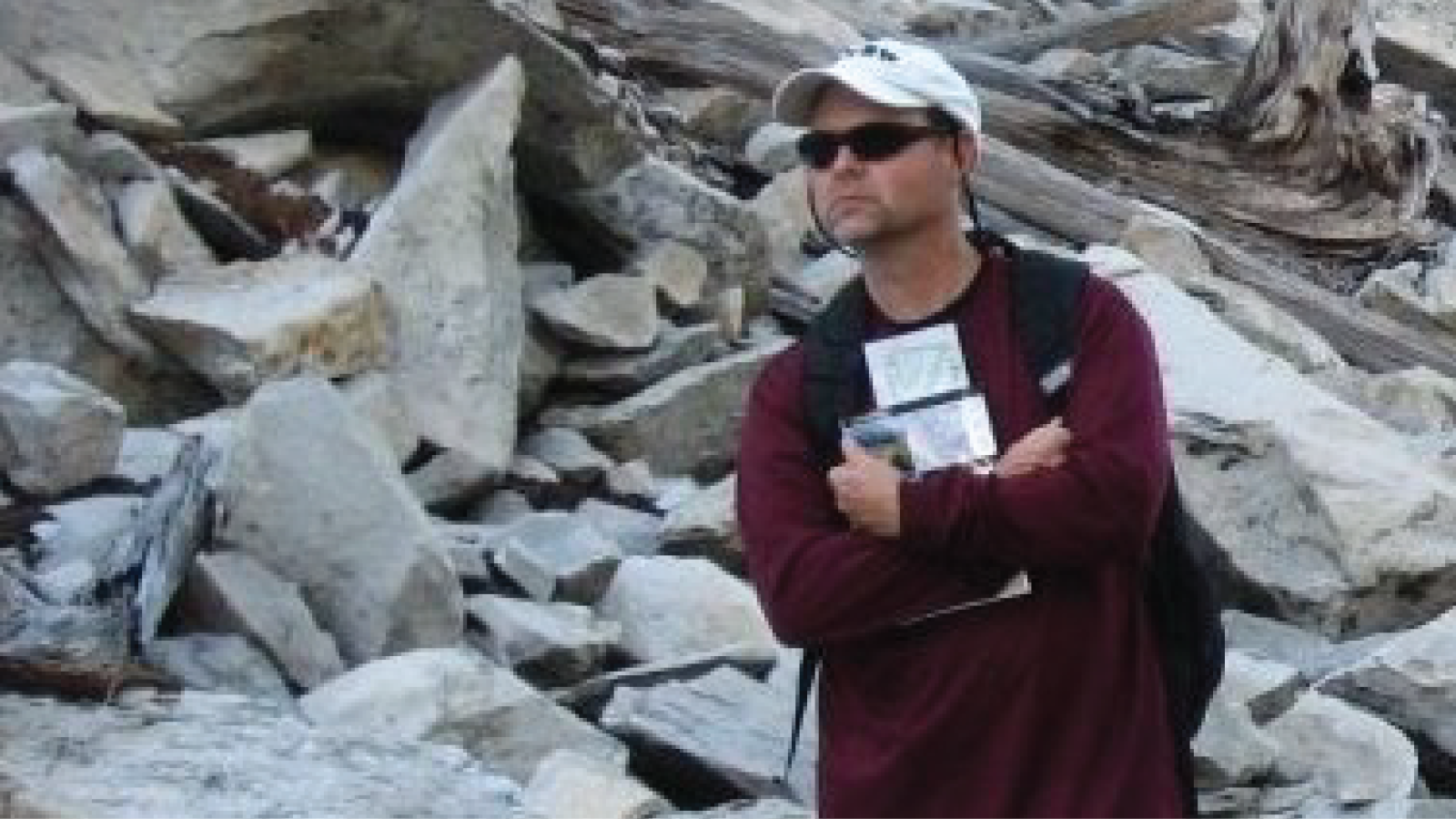Warner Cribb
Warner Cribb earned his PhD from SES in 1993 and is now a professor in the Department of Geosciences, Middle Tennessee State University.
Contact: warner.cribb@mtsu.edu
"Being allowed at OSU to pursue field-based research gave me an understanding of not just how important fieldwork is to basic research in geology, but also an appreciation of how much students really enjoy that aspect of their education."
Where has your degree taken you?
My career has been pretty straightforward. I turned my dissertation into the OSU graduate school on December 31, 1992. My contract at MTSU started January 1 1993. I’ve been at MTSU ever since as a professor.
How do you feel your experience, specifically as an SES/geology student at OSU, prepared you for your career or life in general?
Being allowed at OSU to pursue field-based research gave me an understanding of not just how important fieldwork is to basic research in geology, but also an appreciation of how much students really enjoy that aspect of their education. I continue to stress the importance of course field trips to our faculty, and I still lead summer field trips to the southwest and Cascade Range. Also, at OSU I saw the importance of giving students the opportunity to collect their own data for research. This led me to the development of a geochemistry lab at MTSU, through which undergraduate students are allowed to learn basic principles and procedures of sample preparation and geochemical analysis with XRF, XRD, and IC-PMS for both class projects and research.
I was fortunate to have OSU professors who were great teachers in the classroom, in the lab, and in the field. As a graduate student, I recognized how much students really enjoyed having good teachers, and consequently decided that I wanted a career at a college that actually places high value on good teaching.
What is your favorite memory as a student?
Most definitely, my favorite memories are conducting fieldwork in the Cascade Range at Mt. Hood, and being allowed to serve as the GTA at field camp for three summers. It is amazing to me how many young faculty today don’t know how to teach students in the field, or to even run a field trip. I was fortunate to be able to develop those skills at OSU.
What advice do you have for current and future students?
Be flexible in your post-graduate expectations and resilient in your commitment to the geosciences. No matter what geoscience profession you choose, it will involve unexpected responsibilities and challenges, many of which you may feel unqualified to take on. Your college education cannot possibly provide to you everything you need to know in order to be a successful geoscientist, but you can always continue to draw upon and develop your OSU knowledge and skills throughout your career in order to overcome those unexpected bumps along the road.

